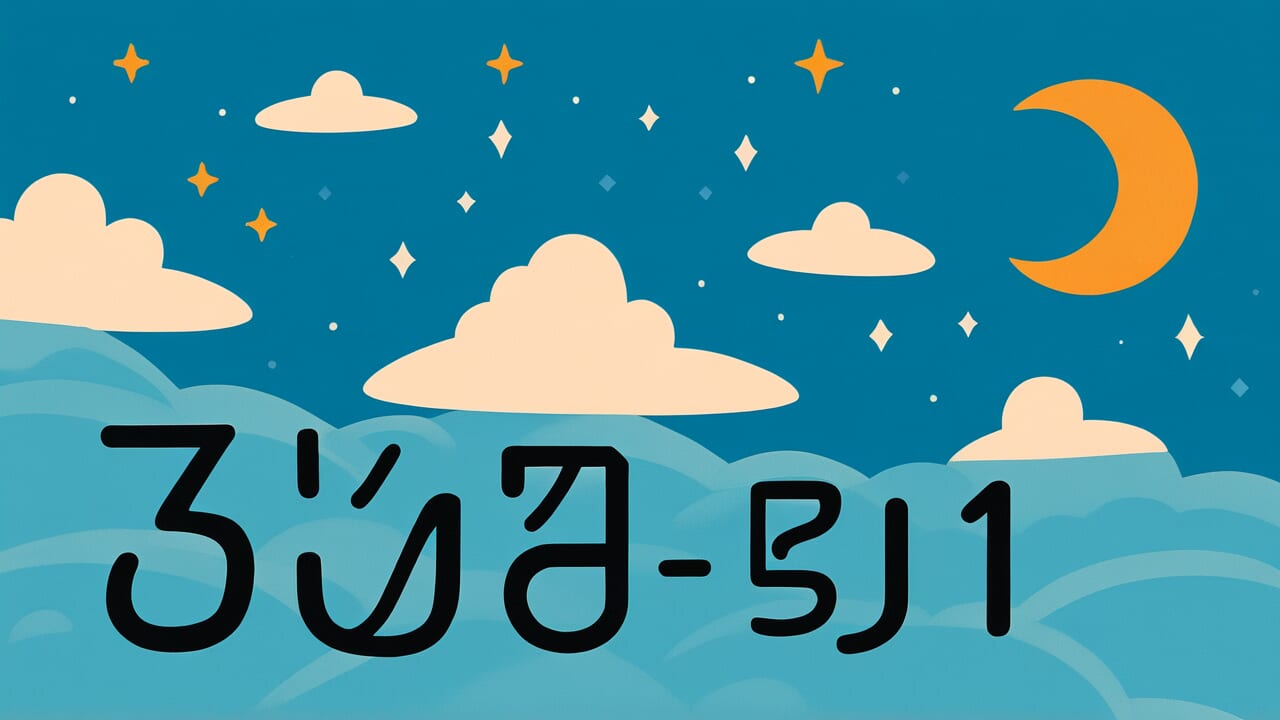How to Read “Heaven has no three days of clear weather”
Ten ni mikka no hare nashi
Meaning of “Heaven has no three days of clear weather”
“Heaven has no three days of clear weather” is a proverb that means good conditions and happy times don’t last long. Change and difficulty will inevitably come.
Just as clear skies don’t continue for three days, smooth periods in life never last forever. This proverb expresses that reality.
This saying is often used as a warning to people during good times. Just because things are going well now doesn’t mean you should let your guard down.
Change will definitely come someday, so you should prepare yourself mentally. It’s also understood as a lesson that when things are going smoothly, you should stay humble and prepare for the difficulties ahead.
Today, people use it in various situations like business success or good periods in relationships. It conveys the importance of accepting that no fortune lasts forever and maintaining readiness for change.
Origin and Etymology
The exact origin of this proverb in historical texts hasn’t been identified. However, we can make interesting observations from how the phrase is constructed.
The expression “Heaven has no three days of clear weather” likely came from observing natural phenomena. In Japan’s climate, especially during the rainy season and autumn rains, clear weather truly doesn’t last long.
In times when agriculture was central to life, people carefully watched the weather. They experienced firsthand how quickly it changed.
The number “three days” deserves special attention. It doesn’t necessarily mean exactly 72 hours. Instead, it’s used idiomatically to represent “a short period.”
Japanese has many expressions using “three days” to indicate brief duration or impermanence. Examples include “mikka bouzu” (three-day monk, meaning someone who quits quickly) and “mikka tenka” (three-day reign).
This proverb expresses life’s impermanence and inevitable change through weather, a natural phenomenon humans cannot control. Our ancestors looked up at clear skies and felt that “this good weather won’t last forever.”
Their genuine feelings became embedded in this saying. It reflects the Japanese sensibility of seeing natural laws as life lessons.
Usage Examples
- My business got on track and I felt relieved, but heaven has no three days of clear weather, so I need to stay focused
- Things are going well now, but heaven has no three days of clear weather, so I shouldn’t assume this success will last forever
Universal Wisdom
Behind the passing down of “Heaven has no three days of clear weather” lies a conflict between fundamental human desires and reality. We all wish happy conditions would continue forever.
However, through long life experience, our ancestors saw through the harsh truth that this wish cannot be fulfilled.
What’s interesting is that this proverb isn’t simple pessimism. Rather, by accepting that change is unavoidable, it offers wisdom for living more intelligently.
Don’t get too carried away during good times, and don’t despair too much during difficult times. This mental balance is what gives us strength to navigate life.
Humans instinctively seek stability. That’s why when good conditions continue, we want to believe “it’ll stay this way forever.” But as nature clearly shows, everything changes.
Just as seasons cycle and weather shifts, life inevitably has its ups and downs.
This proverb lives on today because human psychology doesn’t change even as times do. Getting drunk on success, letting down our guard, then facing unexpected difficulties—this pattern remains constant from ancient times to the present.
When AI Hears This
In 1963, meteorologist Edward Lorenz was simulating weather forecasts on a computer. He rounded an initial value from 0.506127 to 0.506.
Just that change made the prediction for several days later completely different weather. A tiny difference of 0.000127 amplified over time and made prediction impossible.
This discovery revealed a scientific limit: “Weather forecast accuracy drops sharply beyond three days.”
What’s fascinating is that the “three days” in this proverb nearly matches the predictability limit that modern meteorology calculated. The atmosphere is a complex system where countless air molecules interact.
Tiny measurement errors in temperature and humidity expand exponentially over time. Even today’s high-performance computers cannot completely control this error amplification.
Ancient people had no equations or computers. But by looking up at the sky every day, they intuitively understood that weather changeability has a certain rhythm.
The rule of thumb that even when clear weather continues, it becomes questionable by the third day actually captured the chaotic nature of the atmosphere intuitively.
The insight of our ancestors, who identified through observation and experience alone what science took hundreds of years to prove, is truly amazing.
Lessons for Today
What this proverb teaches modern people is wisdom for living with change as a premise. Now that we see others’ success and happiness more often on social media, we easily assume “that person seems to be doing well all the time.”
But in reality, everyone’s life has waves. People face difficulties in places we cannot see.
What matters is the perspective of making the most of good times. If things are going well now, don’t take it for granted.
Prepare for changes that might come next by building up your strength. Value relationships, polish your skills, and maintain your physical and mental health.
Such preparation becomes your support when change arrives.
At the same time, this proverb encourages people going through difficult times. Even if now is painful, it won’t continue forever.
Just as weather changes, your situation will also change. Because change is unavoidable, you can keep hope alive.
If you think of it that way, life’s ups and downs might become a little easier to accept.


Comments